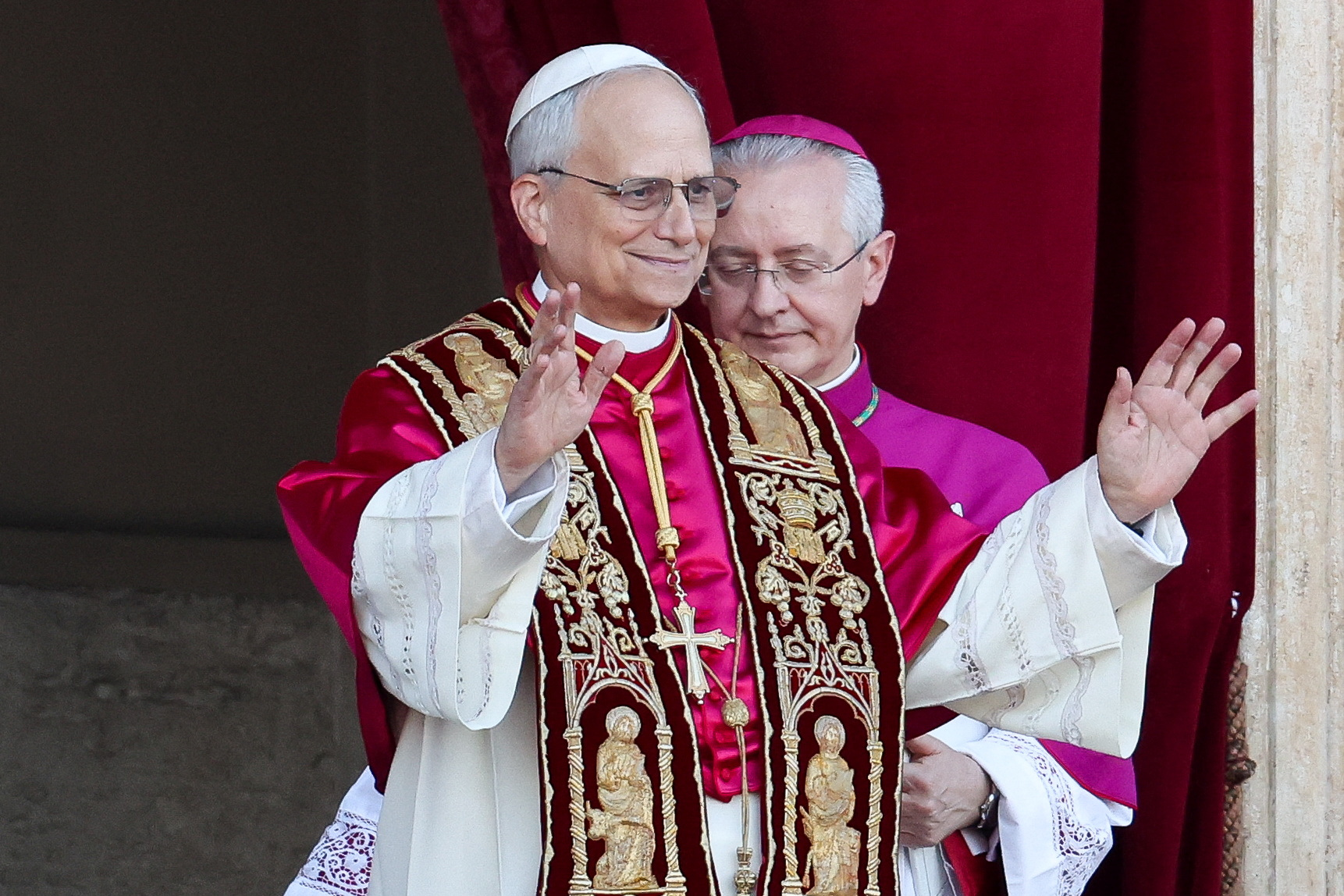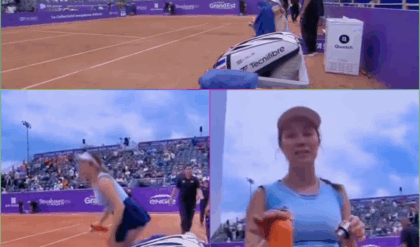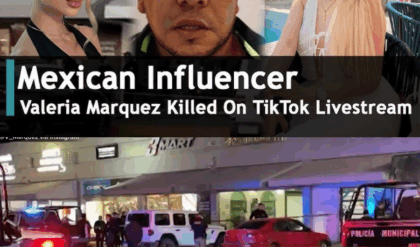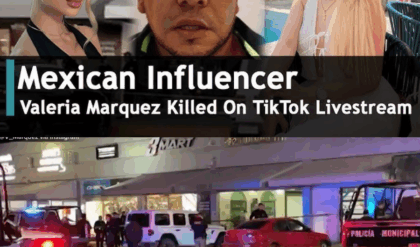Chicago Native Becomes First American Pope, Ushering in a New Era for the Catholic Church
Vatican City / Chicago – May 9, 2025
White smoke billowed from the Sistine Chapel this morning, signaling a monumental decision that would reverberate around the globe. On just the second day of the papal conclave, Catholic cardinals reached a consensus and announced the election of the first American pope in the history of the Roman Catholic Church.
Cheers erupted in Saint Peter’s Square as faithful from around the world received the news. Among the throngs of jubilant worshippers was an American flag waving proudly above the crowd, a symbol of both national pride and global significance. The newly elected pontiff, Chicago-born Cardinal Robert Francis Prevost, will be known as Pope Leo XIV, succeeding Pope Francis after 12 years of leadership.
“It’s a great moment for the world to have an American pope,” said one enthusiastic pilgrim. “It’s something that I believe can help unite us.”

Pope Leo XIV, 69, is seen as a bridge between continents and cultures, with deep roots in both the United States and South America. A dual citizen of the U.S. and Peru, his decades of missionary work abroad have shaped a perspective that transcends national boundaries.
From South Side to the Vatican
Born in 1955 at the former Mercy Hospital on Chicago’s South Side, Robert Francis Prevost grew up in the suburb of Dolton, Illinois. His parents hailed from Ecuador and France, giving him a diverse cultural background from an early age. He served as an altar boy at a local parish near the Chicago-Dolton border and later studied at Catholic Theological Union in Chicago, where he earned a Master of Divinity degree. He also spent time living in Olympia Fields and frequently returned to the Chicago area to visit family and engage in church work.
Although he spent much of his religious life as a missionary in Peru, his Chicago roots remain strong. Last year, then-Cardinal Prevost visited Saint Jude’s Catholic Church in New Lenox for an “Evening of Reflection,” where he shared with parishioners that Pope Francis had appointed him to lead the Vatican’s office of bishops—specifically seeking someone with missionary experience rather than a career Vatican insider.
“He’s one of ours,” said a New Lenox parishioner. “To think the pope once stood right here in our church—it’s just surreal.”
For local Catholics in the Chicago area, the excitement is deeply personal. “My mom’s friend actually had him as a principal at her school,” one woman shared. “When I heard the news, I cried. It’s amazing that someone from here, someone who walked these same streets, is now leading 1.4 billion Catholics worldwide.”
A Papacy with Global Resonance
As Pope Leo XIV stood on the balcony of Saint Peter’s Basilica for the first time, his brief message emphasized peace—a fitting tone for a world grappling with numerous conflicts and divisions. Observers say that choice of language—and even his papal name—signals continuity with his predecessor’s focus on social justice and the poor.
“He’s a global citizen,” said Heidi Schlumpf, Senior Correspondent for the National Catholic Reporter. “Yes, he’s American, but he spent years in Peru and has worked extensively in Rome. That broader perspective helped him become the first American to be seen as truly papabile—someone electable.”
The name “Leo” is also significant. Previous Popes named Leo were known for advocating workers’ rights and social teachings—especially Pope Leo XIII, who authored Rerum Novarum, a foundational text on Catholic social doctrine. Analysts believe Pope Leo XIV’s decision reflects an intent to continue promoting justice for the marginalized.
Pope Leo is widely expected to maintain Pope Francis’s emphasis on synodality, a key initiative aimed at making the Church more inclusive, decentralized, and responsive. During his earlier remarks, the new pope referred directly to this concept—indicating that a listening, compassionate Church would remain a central theme of his papacy.
Quick Consensus in the Conclave

The conclave that elected Pope Leo XIV reached a decision in just four ballots, suggesting strong consensus among the cardinal-electors. That’s relatively fast, considering the complexity of navigating global representation, theological differences, and political sensitivities.
Observers had widely dismissed the possibility of an American pope, partly due to global tensions involving U.S. foreign policy and trade. Some cardinals reportedly feared electing an American could be seen as overly aligning the Church with the United States, especially at a time when global alliances are strained.
Still, Cardinal Prevost was often described as “the least American of the American cardinals” in that he had spent most of his career outside the U.S. This global orientation, coupled with his centrist theological stance, may have made him a unifying choice for the College of Cardinals.
Political and Public Reactions
The election of an American pope drew swift reactions from political leaders across the U.S.
Former President Donald Trump posted on Truth Social: “What excitement and what a great honor for our country. I look forward to meeting Pope Leo XIV. It will be a very meaningful moment.”
Illinois Governor J.B. Pritzker praised the election on X (formerly Twitter), writing: “A historic moment as we witness the first American leading the Catholic Church. Hailing from Chicago, Pope Leo XIV ushers in a new chapter. I join those in our state in welcoming this time of compassion, unity, and peace.”
Chicago Mayor Brandon Johnson also chimed in with a mix of reverence and hometown pride: “Everything dope—including the Pope—comes from Chicago,” he wrote, adding in a formal statement that Leo XIV was “a champion for workers across the globe” and a product of “the most pro-worker city in America.”
What’s Next for Pope Leo XIV?
The Vatican has confirmed that Pope Leo XIV will lead the traditional Angelus prayer this Sunday, his first major public address as pope. Sources indicate that he may also lead a Mass or prayer service as early as tomorrow.
“He looked very comfortable on the balcony,” said Schlumpf. “I expect he’ll be a vocal pope who speaks out on global issues and helps make the Church more relevant in today’s world.”
As Pope Leo XIV begins his tenure, many in the Catholic Church and beyond are watching with hope. A pope from Chicago’s South Side—who speaks fluent Spanish, French, and English; who served the poor in Peru; and who quietly worked behind the scenes in Rome—now steps into the global spotlight.
“I’m an American,” Pope Leo said in an earlier interview, “but I’ve been a missionary my whole life. I think I bring some insight into the Church in the United States and beyond. I’m here to serve all of God’s people.”
And with that, a new chapter begins—not just for the Catholic Church, but for the world.





